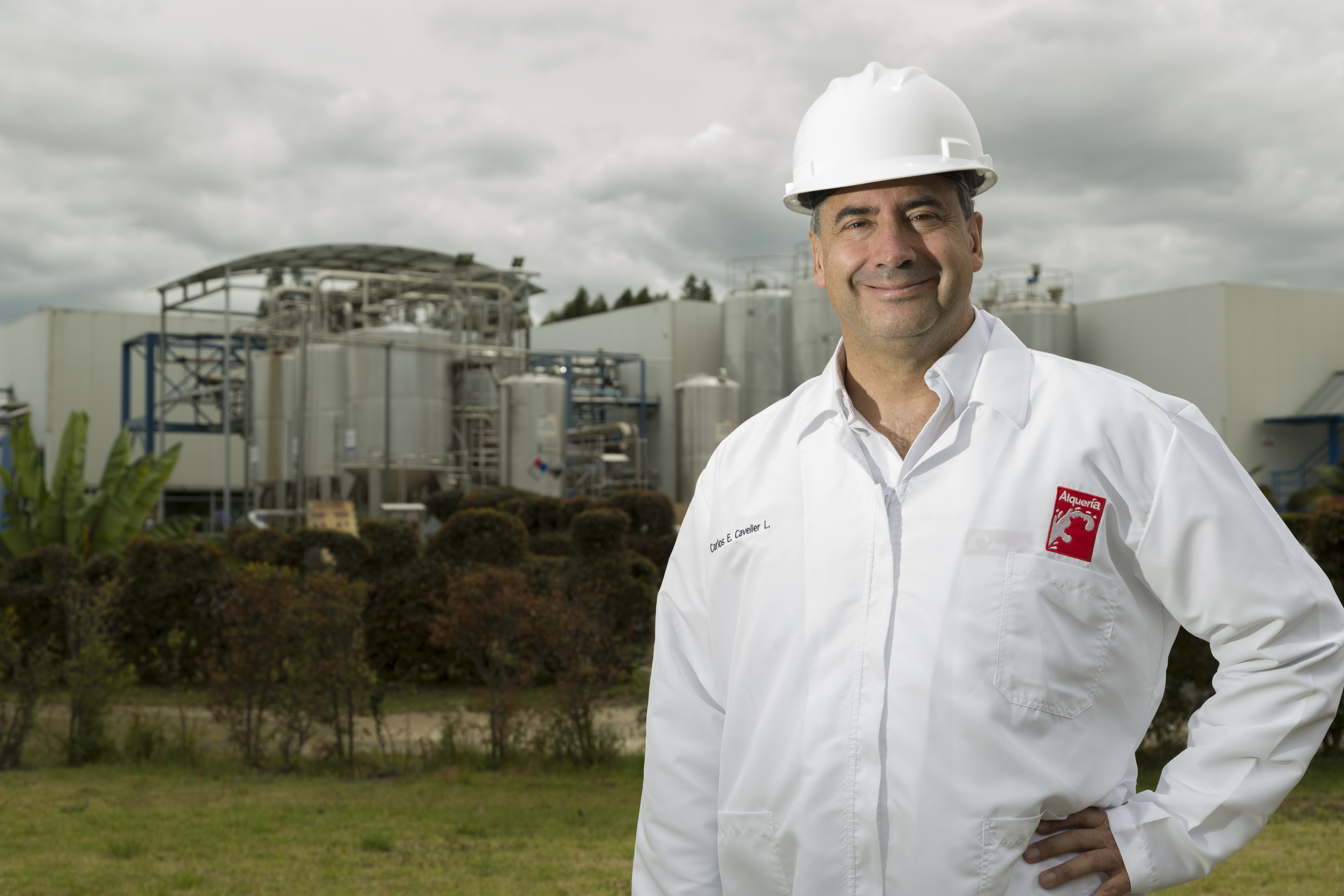
- Chairman of the Board and Dreams Coordinator, Alquería (Dairy)
“I’ve never thought one should use power to benefit a business: power should be used to serve society. I believe that, by building a reputation as a business leader and as a company, one can contribute technical expertise to enhance public policies for an industry – but not for personal gain.”
Summary
Carlos Enrique Cavelier is Executive Chairman of the Board and Dreams Coordinator at Alquería. Founded by his grandfather in 1959, Alquería is the third largest dairy producer in Colombia today. Cavelier renamed the position of CEO to Dreams Coordinator with the belief that hierarchies undermine good communication and sound corporate decisions, hoping to foster open discussion at Alquería. Cavelier initially went into politics where he held positions including council member, state representative for Cundinamarca, served in Colombia’s Congress, worked for the Agricultural Ministry, and served as General Secretary at the Justice Ministry. Cavelier joined Alquería in 1992, with no knowledge of the private sector. In his interview, Cavelier discusses how the combined discovery of aseptic packaging technologies and pasteurizing plants led to the production of ultra-high temperature processed (UHT) milk. Over the period of the subsequent 25 years, due to the discovery of UHT milk, Alquería’s growth soared from an output of 30 million liters to 380 million liters. Cavelier discusses the opening of the Colombian economy in the 1990s under President César Gaviria and how these reforms effected dairy farmers. Cavelier reflects on the impact of the huge 1998 recession in Colombia, when the company approached bankruptcy. Cavelier discusses how Alquería expanded across Colombia, despite highly complex political and social challenges, by removing the traditional tensions between dairy farmers and milk companies by building relationships, which required changing deeply rooted cultures. Cavelier reflects on the evolution of Alquería’s corporate governance between 1992 and the present. Starting with an informal board consisting of family members, over time the company developed an advisory board that included people from diverse backgrounds including finance, law and agribusiness, and developed an ethics committee in 2009. In this interview, Cavelier further discusses the importance of long-term business visions, decision-making structures, fundraising, strengthening value chains, and the importance of using political power to enhance public policies and serve society, not to benefit a business or for personal gain.
Cavelier discusses his belief that businesses must seek to make a positive social impact through education as well as sustainable and environmentally friendly policies. Cavelier wants to ensure that the communities that Alquería operates in are fully educated. For example, in the municipality of Cajicá, the company’s education foundation has raised all of the schools there to A-tier, which is the best education level in Colombia, and the company has a scholarship program for students across Cundinamarca. Ultimately, Cavelier is striving to serve 200,000 children across Cundinamarca. Alquería is now hailed as a role model of sustainability in Colombia.
Video Clips by Topic
Full Length Video (login required)Interview Citation Format
Interview with Carlos Enrique Cavelier, interviewed by Andrea Lluch, Bogotá, Colombia, November 19, 2018, Creating Emerging Markets Oral History Collection, Baker Library Special Collections, Harvard Business School.
